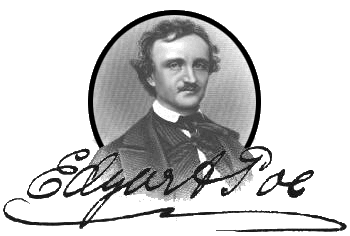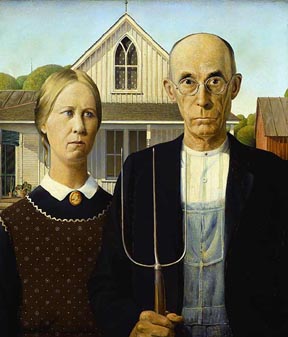Directions: Answer five of the following questions in complete sentences/paragraphs on a separate piece of paper so that someone who has not read the question but has read the book would know what you are talking about.
DAY ONE: chapter 1
Chapter I
1. (a) Describe the society in which Anthem is set. Some areas to consider are: the political structure, degree of technology, social relationships, quality of life, and education.
(b) Would you want to live in this society? Explain why or why not.
2. (a) When does this novel take place—in the past, the present, or the future? How do you know?
(b) In this chapter Equality 7-2521 states that it is very unusual for men to reach the age of 45. Offer several possible explanations as to why life expectancy is so short in his society.
3. Clearly, Ayn Rand intended Equality to stand out from his “brothers.” Explain how she accomplishes this by contrasting Equality’s physical qualities and character traits to those of his fellow men.
4. (a) How would your teachers react if you had Equality’s “curse”?
(b) Why do Equality’s teachers disapprove of his quick mind?
(c) Why does the Council of Vocations assign Equality the job of street sweeper? Is it due to error, incompetence, or a more sinister motivation? Explain.
5. At this point in the novel, does Equality accept the moral teachings of his society? If so, why doesn’t he feel shame or remorse when he knows that he’s committing a crime? Find textual evidence to support your answer.
6. (a) Would you want to be friends with someone like Equality? Why or why not?
(b) Would this answer change depending on if you lived in the society depicted in the book or in our society today? Why or why not?
-----------------------------------------------------------------------------------------------------
Directions: Answer five of the following questions in complete sentences/paragraphs on a separate piece of paper so that someone who has not read the question but has read the book would know what you are talking about.
DAY TWO: chapters 2-3
Chapter II
1. Reread the account of Liberty 5-3000 on page 38. What character traits are revealed in this brief description?
2. Find several examples of the ways in which this society tries to obliterate each individual’s mind (and self) by quashing personal choices, desires, and values.
3. (a) Contrast Equality with the rest of the men living in this society (pg. 46).
(b) Of the whole range of feelings possible to man (joy, excitement, anger, embarrassment, etc.), why is fear the prevalent emotion in this society?
4. (a) What word is Equality struggling to recapture on page 49?
(b) In your opinion, why is mentioning this word the only crime punishable by death in this society? How does this word contradict the ideals of this society? What could its rediscovery possibly lead to?
Chapter III
5. (a) What does Equality discover in this chapter?
(b) How important is this discovery? Describe four or five ways in which it would help society, and make life easier or more enjoyable.
6. Outline some of the Council of Scholars’ beliefs, and Equality’s refutation of each of those beliefs.
-----------------------------------------------------------------------------------------------------
Directions: Answer each of the following questions in complete sentences/paragraphs on a separate piece of paper so that someone who has not read the question but has read the book would know what you are talking about.
DAY THREE: chapters 4-6
Chapter IV
1. Discuss the appropriateness of Equality’s new name, “Unconquered.”
Chapter V
2. Equality understands that his invention will benefit mankind greatly; however, this was not his main motivation in conducting his experiments, and it is not the primary source of the great joy he experiences. Discuss.
3. In your opinion, why is Equality so interested in seeing his own image at this point in the novel? What emotion is he feeling?
Chapter VI
4. The old locks and lack of guards in the Palace of Corrective Detention indicate that prisoners never tried to escape. Why not?
-----------------------------------------------------------------------------------------------------
Directions: Answer each of the following questions in complete sentences/paragraphs on a separate piece of paper so that someone who has not read the question but has read the book would know what you are talking about.
DAY FOUR: chapters 7-8
Chapter VII
1. (a) Outline four of the Council’s reasons for rejecting Equality’s invention.
(b) What are the real reasons behind the Council’s rejection and fear of the gift?
2. What does Equality mean, at the beginning of the chapter, when he says, “We are old now, but we were young this morning” (pg. 68)?
Chapter VIII
3. What is Equality experiencing for the first time in this chapter, and what does he feel as a result?
4. Explain why Equality laughs when he remembers that he is “the Damned.”
5. What does the Uncharted Forest symbolize in Anthem?
-----------------------------------------------------------------------------------------------------
Directions: Answer each of the following questions in complete sentences/paragraphs so that someone who has not read the question but has read the book would know what you are talking about.
DAY FIVE: chapters 9-10
Chapter IX
1. On pages 93–94, Liberty contrasts Equality to his fellow men. Paraphrase this passage.
2. In this chapter, Equality questions the morality of his former society. Contrast what he was previously taught about solitude, good, evil, and joy to what he now believes.
Chapter X
3. Describe the house and its contents in your own words, and explain why Liberty and Equality find it so strange and unique.
-----------------------------------------------------------------------------------------------------
Directions: Answer five of the following questions in complete sentences/paragraphs so that someone who has not read the question but has read the book would know what you are talking about.
DAY SIX: chapters 11-12
Chapter XI
1. What great discovery does Equality make in this chapter? What effect does this discovery have on him? How will his life change because of this?
2. Explain the following quotations in your own words, and discuss how they can be applied to your life:(a) “Whatever road I take, the guiding star is within me.”(b) “For the word ‘We’ must never be spoken, save by one’s choice and as a second thought.”
3. What does Equality now realize is the proper goal and purpose of his life?
4. In what ways is “I” like a God?
5. Reread the incident with the Saint of the Pyre (pg. 50). What was he trying to communicate to Equality?
Chapter XII
6. Why do the main characters take the names Prometheus and Gaea? Why weren’t they allowed to choose their names in their old society?
7. What does Prometheus plan to do in the future? Why does he make theses plans? What will he have to do to accomplish these things?
8. Prometheus reaches the important realization that “To be free, a man must be free of his brothers” (pg. 118). Cite several examples from Anthem that illustrate the truth of this statement.









